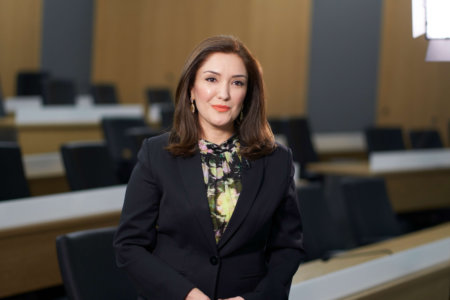
A career in finance can be highly rewarding and exciting. The sector enjoys constant developments, leading to opportunities in major financial markets worldwide and an uptick in finance jobs. Graduate degrees such as a master’s in accounting could help you carve a career in the field and potentially position you for a promotion or for a senior position within a financial division.
Finance jobs are in-demand. Bloomberg, for instance, recently reported that the easing of lockdown in the UK has turbocharged the market for London finance jobs, with postings in the third quarter more than double last year’s level.
Over in the US, the US Bureau of Labor Statistics notes that employment in business and financial operations occupations is projected to grow 8% from 2020 to 2030, about as fast as the average for all occupations, adding about 750,800 new jobs.
“Globalisation, a growing economy, and a complex tax and regulatory environment are expected to continue to lead to strong demand for accountants and auditors,” it said.
Many former and current CEOs also have accounting degrees, including American Express CEO Stephen Squeri and Unitedhealth Group CEO Dave Wichmann. Former AT&T chairman and CEO Randall L. Stephenson also have a master’s degree in accounting. Accounting careers are a relatively stable field, making it a good career choice.
Just about every business, regardless of industry, requires the services of an accountant, which means the potential to find a job in just about every corner of the globe is endless.
How will a master’s in accounting help me find finance jobs?
The degree will sharpen your analytical skills and deepen your knowledge of accounting principles. It could also serve as the boost you need to gain a senior position within a financial division of a variety of companies.
A master’s in accounting is an important step toward certification as a public accountant (CPA), it said. It adds that this advanced degree will also equip learners with advanced analytical skills, in addition to deepening one’s knowledge of accounting principles and learning the latest technology.
Ohio University notes earning a master’s degree in accounting prepares you for accounting and finance positions, be it as an accountant or auditor.
“For example, one potential career path a MAcc [a Master of Accountancy] degree would follow could be that of an accountant,” it said, adding that work settings could include international corporations, start-up companies or anything in between.
“Accountants can be employed by large external firms, or they might work in the finance and accounting function within a company. These roles can ultimately develop into the company’s future CFOs and CEOs.”
What will I learn?
Many universities offer the degree. The University of Manchester, for instance, notes that its MSc Accounting programme will introduce students to different aspects of accounting research and guidance in conducting the research.
Students will be exposed to topics such as Advanced Management Accounting, Corporate Financial Reporting, Qualitative Research Methods, International Accounting Practice and Regulation and Corporate Governance.
Students can expect the programme to advance their thinking and debate in contemporary issues in financial reporting, management account, auditing and governance, in addition to developing skills that are valued by employers, or prepare for a research career in academia.
York University Schulich School of Business’ programme is academically rigorous; it is accredited by CPA Ontario and the ACCA.
“Successful graduates of the programme will be prepared to sit for the CPA Common Final Examination (CFE). In addition to gaining in-depth knowledge of all sub-disciplines that constitute the broad field of accounting, they will have deepened their expertise in two of the programme’s areas of specialised electives: tax, assurance and performance management,” said the university.
Ultimately, an advanced degree will equip you with a more specialised skill set to grow in your career, or in finding finance jobs.










